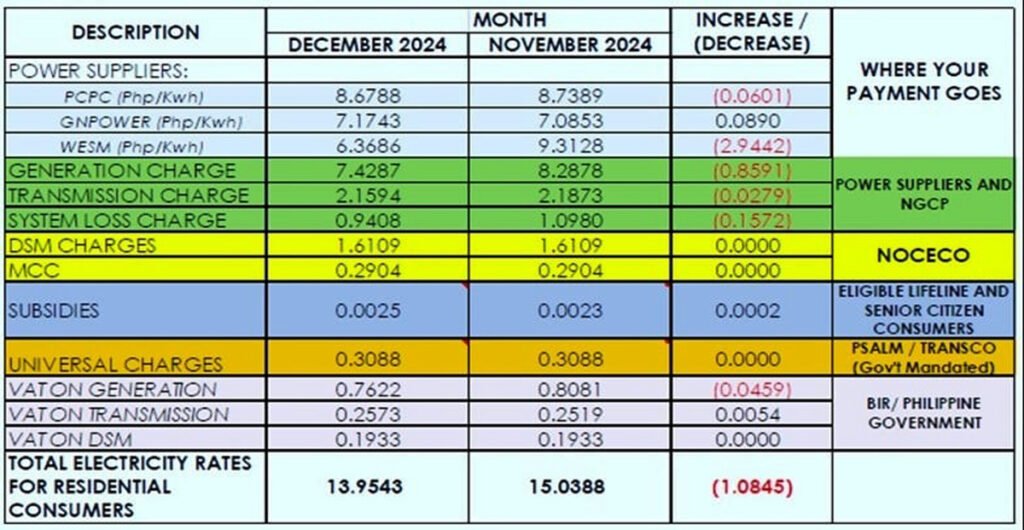• CHERYL G. CRUZ
Member-consumers of the Negros Occidental Electric Cooperative (Noceco) will pay P13.9543 each kilowatt-hour of electricity consumed, or a reduction of P1.0845/kWh, this billing month of December.
The decrease in its residential electricity rate, from P15.0388/kWh in November, was mainly due to the P2.9442/kWh slash in the cost of energy purchased in the Wholesale Electricity Spot Market (WESM), Noceco said in an advisory.
It added that Kepco Salcon Power Corporation (KSPC) has started delivering power Dec. 7. “The impact of this new power supply source will be reflected in the electricity bills for the month of January 2025.”

The electric cooperative (EC) reminded its member-consumer-owners (MCOs) anew to always be mindful of their energy consumption and manage their electricity bills effectively. “By adopting energy-efficient practices, MCOs can contribute to reducing their overall energy costs.”
Noceco, along with the more than 100 ECs in the country, would soon be exempted from local taxes, fees, and charges imposed by local government units (LGUs), as long as they comply with the financial and operational standards of the National Electrification Administration (NEA).
The exemption is under a joint memorandum circular signed Dec. 4 by Energy Secretary Raphael Lotilla and Finance Undersecretary Bayani Agabin, which provides the guidelines for electric cooperatives to avail of preferential rights.
To qualify, ECs must attain at least a 75 percent rating based on NEA’s compliance parameters, including high collection efficiency, positive net worth, system reliability and system loss standards, implementing electrification projects to attain a 100 percent customer connection, and submitting complete and timely reportorial requirements.
The NEA is expected to issue the guidelines governing its issuance of Certificate of Compliance soon, the DOE said.
“This local tax exemption is a significant milestone for our qualified ECs, as it directly translates to reduced financial burdens that can be reinvested into improving services and achieving 100 percent total electrification,” Lotilla said in a statement. “By reducing these costs, we empower them to focus on expanding access to electricity, especially in unserved and underserved areas, ensuring that no Filipino household is left behind.” | CGC




